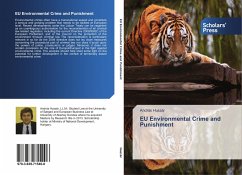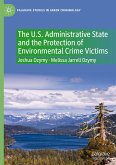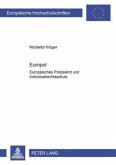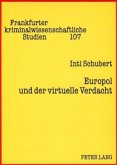Environmental crimes often have a transnational aspect and constitute a serious and growing problem that needs to be tackled at European level. Recent developments under the Lisbon Treaty can be regarded as an unambiguous authorisation for the reconsideration of all criminal law related regulation, including the current Directive 2008/99/EC of the European Parliament, and of the Council on the protection of the environment through criminal law. The reconsideration is particularly relevant in so far as the 2008 directive does not lay down measures concerning the procedural part of criminal law, nor does it touch upon the powers of police, prosecutors or judges. Moreover, it does not contain provisions on the role of Europol/Eurojust in the fight against environmental crime. The analysis should help shed some light on the potential for further development in the context of territorially based environmental crime.
Bitte wählen Sie Ihr Anliegen aus.
Rechnungen
Retourenschein anfordern
Bestellstatus
Storno








